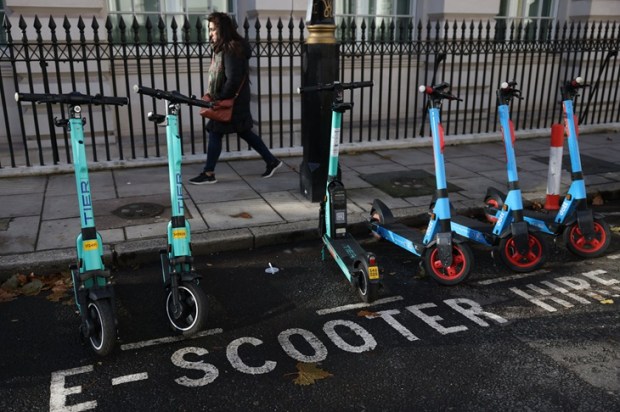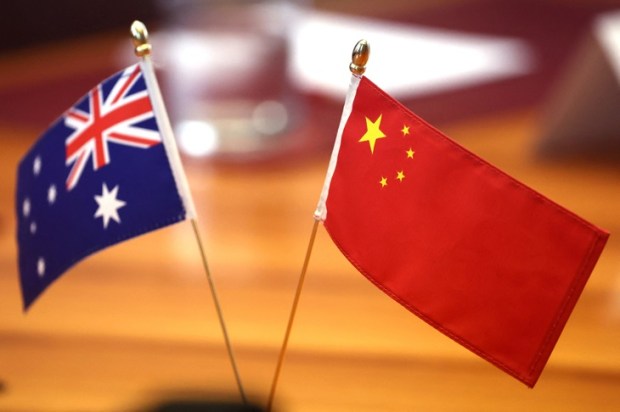The Bank of International Settlements, the G7 Finance Ministers and the Australian Securities and Investment Commission have amped up carbon emissions-based “climate risk” warnings to Australian firms. This represents a new triumphal procession of green activism through international business institutions.
Environmental crusaders’ colonisation of business is most evident in that nadir of wokeism, the annual Davos meetings, attended (remotely this year) by business leaders who pay up to £480,000 to listen to nagging strictures of figures like Greta Thunberg and Prince Charles.
The first Davos meeting in 1973 emphasised the importance of profits, while reminding corporations that they must serve the needs of customers, suppliers and employees.
The objective of the latest ‘Davos Manifesto’ was “the Great Reset”, seeking a more sustainable, inclusive world. The focus is, “policies aimed at using locally-sourced food suppliers, introducing alternative sources of protein to reduce meat consumption, sourcing 100% renewable electricity, reducing or eliminating the use of materials that cannot be recycled or easily re-used, and increasing the availability of electric vehicles.”
That so many of the world’s business leaders attend the meetings with their increasingly intrusive agendas indicates a deepening loss of confidence in traditional notions of free-market capitalism. People who built their fortunes on the philosophy caricatured as “greed is good” no longer believe the pursuit of profit brings societal wealth. Davos Man promotes a government role extending far beyond that in today’s welfare states. Many genuinely see the need for a socialistic future and want to use their own success to achieve this.
Combating climate change has been the galvanising force for such interventionism, since, if some sort of catastrophic outcome of market competition is inevitable, the philosophy articulated by Adam Smith must be abandoned. Of course, there is no evidence that human-induced climate change could devastate the world economy. Even those who believe that greenhouse gas emissions are harmful are unable to construct a catastrophic narrative. Bjorn Lomborg uses climate alarmists’ material to put its cost next century as shaving global per capita GDP growth from 363 per cent to 356 per cent. Many, including the leaders of the fastest growing global economies, consider such rapid growth without hydrocarbons is a fantasy. And it is difficult to see anything but a downside for Australia where hydrocarbons comprise one-fifth of exports.
The Davos summiteers as influential drivers of more action have popular support. UNDP finds 64 per cent of people worldwide believe in a global “climate emergency”, 59 per cent of whom were in favour of doing “everything possible urgently” to remedy it. Younger people are more accepting of a “climate emergency” than the average.
In Australia, on the UNDP figures, 72 per cent of people believe in a climate emergency and of these 76 per cent want to do everything possible to remedy it. A more sober picture for Australia comes from the IPOS surveys but even these have 36 per cent believing that climate change is mainly or entirely caused by human activity.
Popular opinion doubtless drives or at least reinforces the decisions of those making investment decisions on our behalf. And it comes as little surprise that a shareholder vote for Exxon board seats has resulted in three green activist appointments. The vote was supported by institutional investors including BlackRock, which controls $7 trillion in savings.
Similar judgements are made by Australian superannuation funds, apparently while also enjoying success in their investment performance. This is in spite of conventional portfolio theory seeing departures from diversification as likely to reduce returns. Five of last years’ top ten superannuation funds exclude or avoid investments in fossil fuel businesses, usually accompanying other exclusions like weapons, nuclear energy and tobacco. Most of the five also seek changes from management in the firms they select for investment.
Top 10 Investment Return Rankings: Latest year
| Rank | Fund | Return | Fossil fuel exclusions |
| 1 | Hostplus – Balanced | 24.60% | Avoid |
| 2 | BT Panorama Full Menu – BT Wholesale Multi-manager Balanced Fund | 22.62% | No exclusions |
| 3 | CFS-FC Wsale Pers – FirstChoice Wsale Multi-Index Balanced | 21.57% | No exclusions |
| 4 | AustralianSuper – Balanced | 20.70% | Exclude |
| 5 | Sunsuper for Life – Balanced | 20.36% | Avoid |
| 6 | MLC MKey Business Super – Horizon 4 – Balanced Portfolio | 20.20% | No exclusions |
| 7 | QANTAS Super Gateway – Growth | 20.01% | No exclusions |
| 8 | smartMonday PRIME – Balanced Growth – Active | 19.92% | Avoid |
| 9 | Suncorp Brighter Super Pers – Suncorp Multi-Manager Growth Fund | 19.85% | No exclusions |
| 10 | Vision SS – Balanced Growth | 19.69% | Exclude |
It may be that the weight of funding against certain sectors has depressed their price and raised that of firms in the preferred sectors. If so, there will be a correction. Meanwhile, the availability of capital to firms in the targeted sectors is reduced and other firms are coerced into decreasing their exposure to hydrocarbon enterprises and incurring costly expenditures to mitigate any such exposure.
People should be free to exercise their preferences in how their savings are used. But regulatory and taxation incentives to superannuation funds are to maximise returns, not to re-shape the nation’s industrial profile. Funds that promote political objectives rather than maximising members’ returns should lose their taxation and regulatory incentives.
Alan Moran is with Regulation Economics.
Update
Globally, in response to investment fund pressures BP, Shell, Conoco and US giant electricity utilities like Dominion, Duke and Southern have committed to net zero emission policies. In Australia, the Business Council is a strong promoter of this and even firms presently wedded to high coal, gas and oil supply, including AGL, APA, and BHP have signed the pledge, while the Financial Review has a story today on how the Western Australian government is forcing a slightly reticent Woodside into line. Although there is some window dressing in this, the policies are distorting business investment decisions and, of course, the firms’ executives and PR budgets have joined the propaganda fray.
Got something to add? Join the discussion and comment below.
Get 10 issues for just $10
Subscribe to The Spectator Australia today for the next 10 magazine issues, plus full online access, for just $10.


























Comments
Don't miss out
Join the conversation with other Spectator Australia readers. Subscribe to leave a comment.
SUBSCRIBEAlready a subscriber? Log in